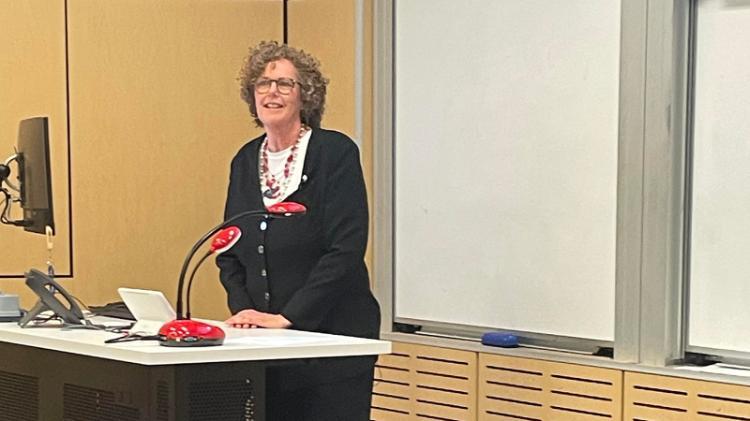The Allan Sefton Memorial Lecture and Prize is an annual event in honour of the late Allan Sefton, who was well known in the Illawarra for his work as a naturalist and conservator of the local environment. In recognition of his contributions to environmental science in the Illawarra region, the Allan Sefton fund is used to award a prize to the best student graduating in the Bachelor of Environmental Science Honours Program at the University.
Allan Sefton Memorial Lecture
2024 Allan Sefton Memorial Lecture
The Energy Transition – what’s its status and what role can geoscientist play?
Presenter: Dr Peter Moore
In this lecture, Dr Moore presented a business perspective of the status of the energy transition and discuss the opportunities and challenges, both for Australia and the world, with a particular emphasis on the role that geoscience and geoscientists can play.
About Dr Moore
Peter Moore is a geologist, with a combined business and academic background. He has a BSc from the UOW, a PhD from the University of Adelaide, an MBA from Melbourne University and is a Graduate of the Australian Institute of Company Directors. Peter has worked in the geological survey of WA, at Exxon Mobil (including as their worldwide, Global Studies Manager), at Woodside Energy (including as the Executive Vice President for Exploration), at Curtin University (as a Professor in the Faculty of Business and Law), and as a company director for several large ASX companies. He is recognised by the Australian Geoscience Council as a National Geoscience Champion based on his academic work, business impact, and dedication to geoscience education, particularly around energy and the energy transition.

2023 Allan Sefton Memorial Lecture
Is Antarctic science worth the carbon miles?
Presenter: Dana Bergstrom
In this talk, Professor Bergstrom looks at the current human footprint in Antarctica which is collectively small compared to the size of the continent but found mostly in areas used by wildlife. As Antarctic research has an environment impact, it poses the difficult question of whether the carbon footprint and environmental damage caused by the scientific machinery is worthwhile in comparison to the resulting increase in human knowledge.

Attendees at the 2023 Allan Sefton Lecture